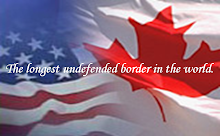This gray watery grave filling my throat with mud
It would be easier not to breathe
I forgot
I forgot
To claw, to struggle, to fight
And yet I lifted mine eyes above the earth
But being blind could not see the light
I shrank back into the dirt from whence I came
Unable to move, unable to speak
It would be easier to not breathe
to just fade into the dark
In being nothing become nothing
failed, incomplete and untried
In receiving life, giveth none.
ckiJune 21 2011
Sometimes my mind takes a turn down a dark path, sometimes it becomes heavy with thought, other times, empty. Sometimes when I have written something, I wonder why, and on rare occasions, it brings a tear to my eye for some inexplicable reason.















13 comments:
SG You have certainly given me something to ponder on my walk this morning.
It is a very powerful piece to me...
T:
I think you will understand if I say that it was one of those puppies.
"chill these bones their
language lost
in this fresh silence
weather hides all
odours of decay"
--Joy Kogawa "grief poem"
I'm reminded of McRae and Sassoon when read of watery, muddy earthen graves.
Ms. Kogawa's poem is, perhaps, more pointed and less direct.
Dave:
I have a strange fondness for some of the WWI soldier poets, but I have only read a few, and can barely remember them... Julian Grenfell and Wilfried Owen were two that struck a chord with me, although I think that McRae (a standard) and Sassoon were much better known.
The name Joy Kogawa sounds oddly familiar, but haven't read anything by her.
I have to say that I am really starting to wonder as to the capacity of your brain.
The capacity of my brain?
I studied the art of WWI as a cadet; and with a degree in English I studied the poetry.
The WWI poets, and artists, tend to evoke the helplessness before fate - death is no longer romanticized, but industrialized. The works express a moral death not yet finalized by the passing of the soul and the destruction of the body. There's no raging against the light, which disturbed me then, and which hasn't refused to settle yet today.
Dave:
"The capacity of your brain", as in overload, stuffed to the rafters, busting at the seams. I said this having made note of the variety and style of your comments both here and at TAH.
Ah... I think that the WWI poetry would make for an extremely interesting discussion. Of course though, you probably still have it all IN your head.
Should be familiar - Joy Kogawa, Canadian of Japanese ancestry - renowned for her novel "Obasan" (1981)and other literary accomplishments...her family was interned at Slocan during WWII.
"...Rage against the dying of the light"..... Shades of Dylan Thomas. Vewy intewesting... Methinks you and that DaveO chap could indeed have some very in-depth discussion re literature/philosophy and/or debate... (gray matter and dendrites)Pass the popcorn.
Big Sister - is that buttered popping corn? I can't do in-depth discussions without popping corn. And tom-toms and I think I have a beret around here somewhere.
Big Sis:
Nope... the name rang a bell, but not much else. I did Google and take a boo, so yes, I did see that information as well. Did you read the book or do you have it? I also noticed that she was born the same year as mom.
And ... yes... I also noticed the Dylan Thomas reference, but did not mention it...
Re: The Book - The Aunts and Mom took turns reading it. Can't recall who it actually belonged to, but I may have a copy kicking around somewhere...I know I read it after Mom when it was first published...but that was before you were even in high school. It was a big deal for the woman to actually write about a period of history that was not spoken of nor mentioned in history books at the time.
Big Sis:
I would say essentially it was a bigger deal that she, being a Japanese woman, wrote it at all ... period. Even if it had been a period of history that was spoken of and mentioned in history books of the time it still would have been a big deal for her particular voice to be heard.
SG-The Great War Poets would make an excellent discussion. I think you're aware that Owen, Grenfell, Graves, Sassoon plus others were and are all hugely influential writers to me as a young boy and still are today.
DO's description of the poet's feelings of "helplessness before fate" not only is right on but that is exactly what drew me to these poets and their work in the first place. Because of certain events I had experienced as a boy i could really relate and identify with those feelings of helplessness myself.
Really good stuff here....
T:
Hmmm... yes...
And now your comment has started me thinking more about my thought processes and the "how and why" I seem to be able to relate and identify with those writings.
Post a Comment